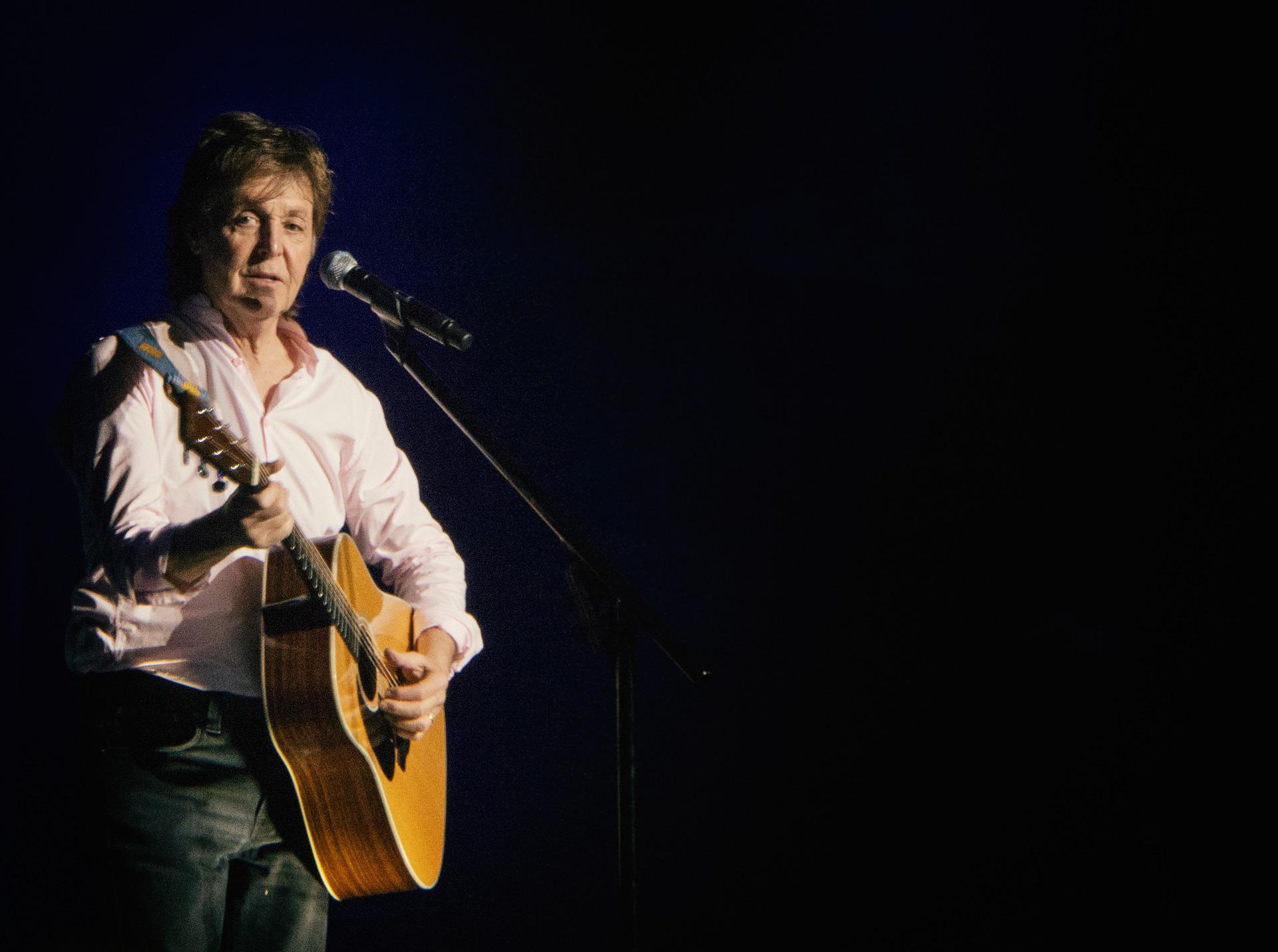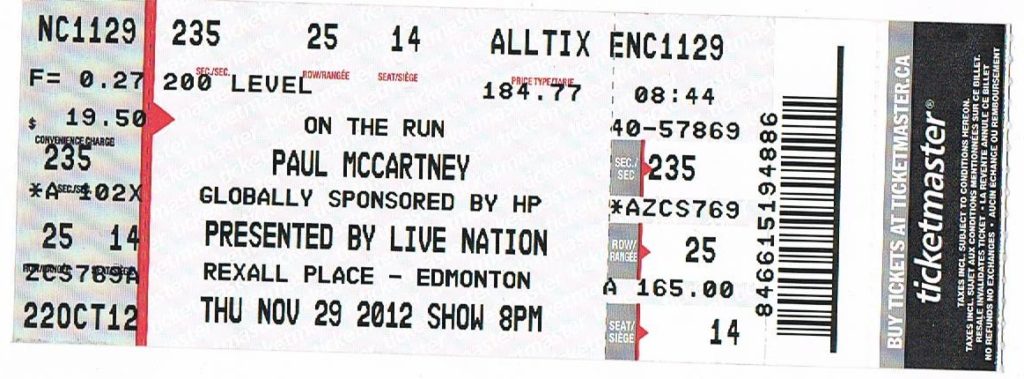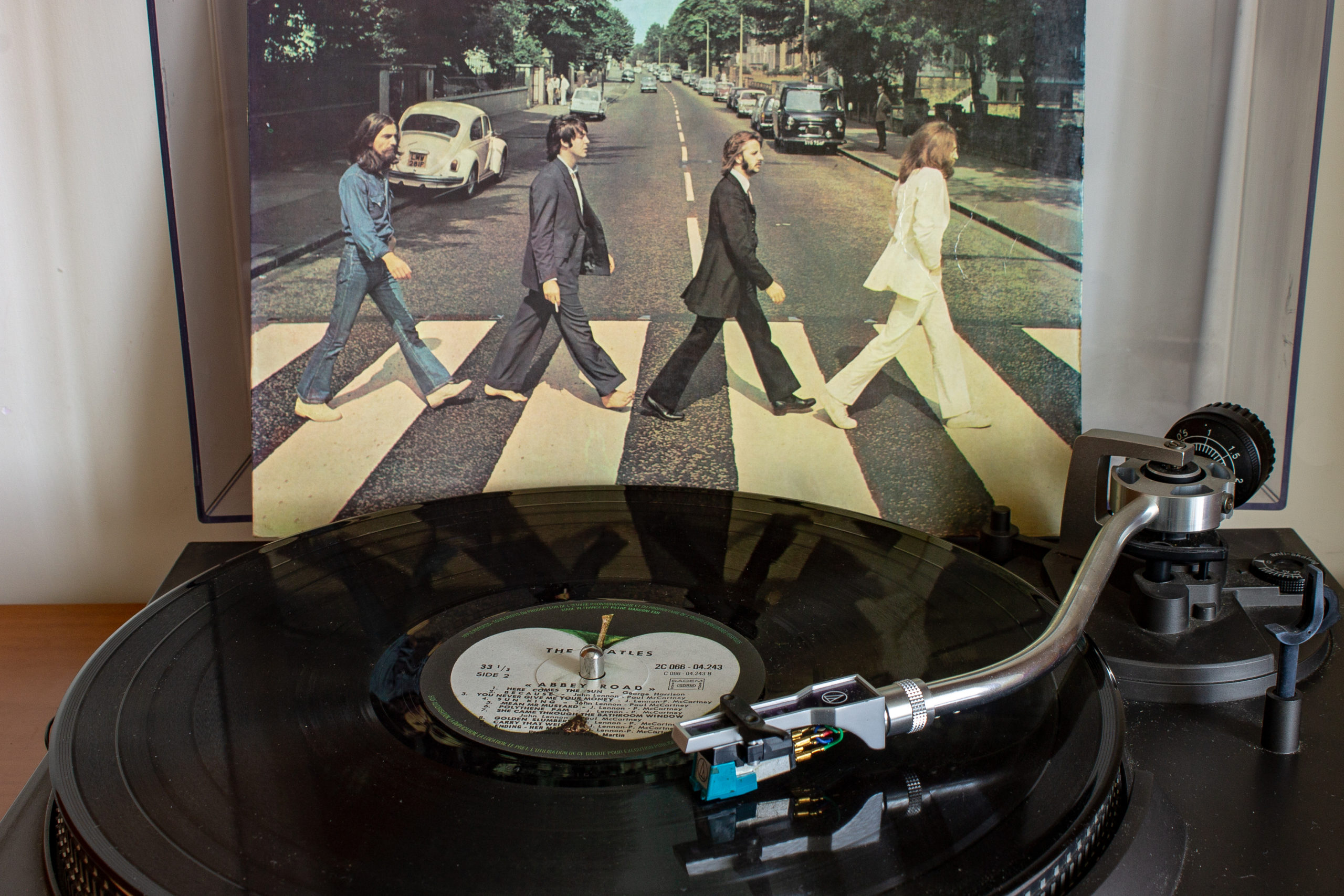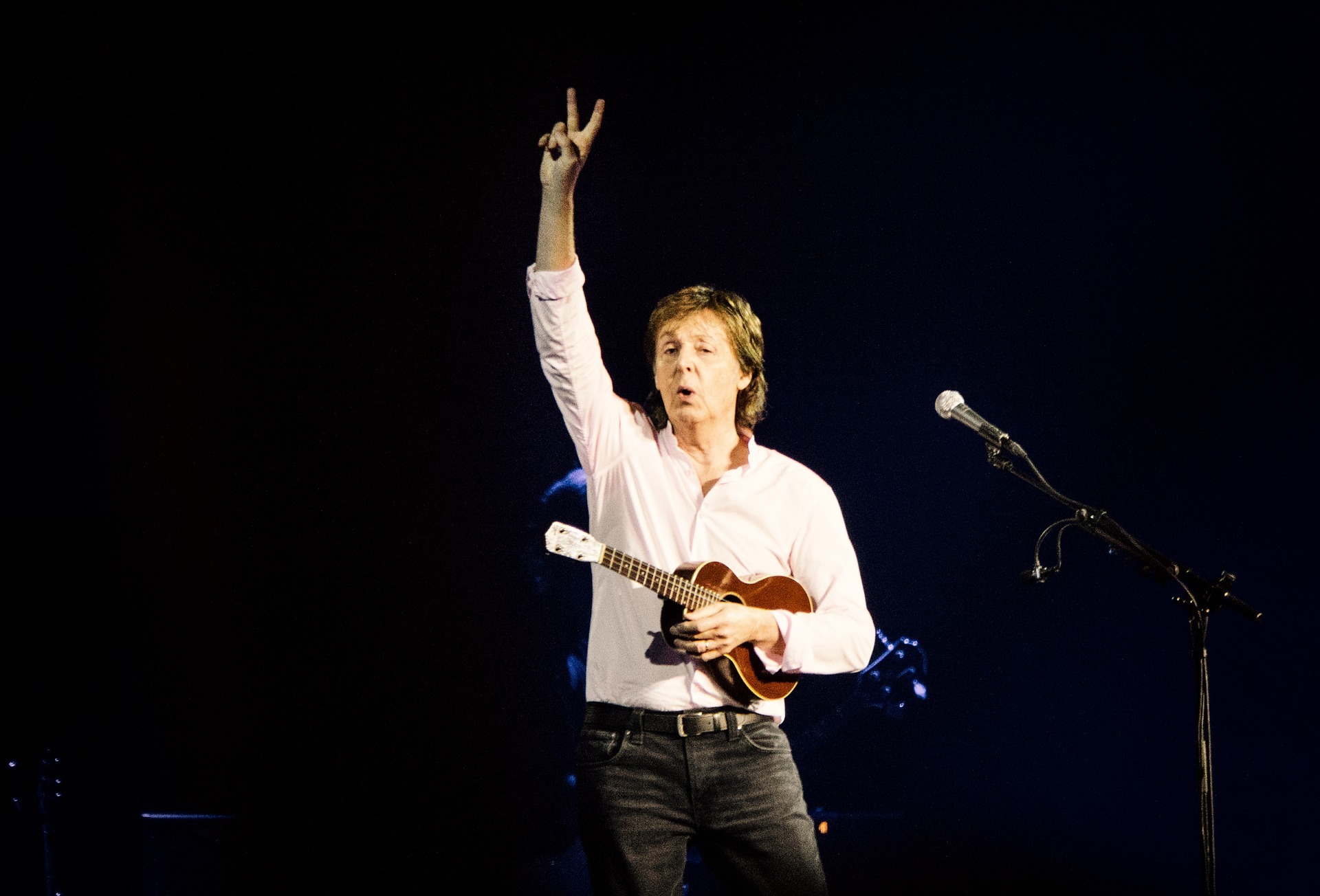It can be downright strange the ways things change, and yet remain the same. Today’s #TBT post is a trip back to the summer of 2016. Paul McCartney was in the midst or a tour – similar to his regimen this year.
He was a spry 74 years-old back then – a mere decade older than when he, John, George, and Ringo drew that chronological line in the sand on “When I’m 64.” Sir Paul sat down with a New York Times reporter for a little Q&A.
I was so impressed with his responses that I turned the moment into a programming primer. And a half dozen years later, his comments are even more relevant than they were back then.
Always a professional entertainer, Paul is very much like an on-air PD. And in this interview, he provides great lessons for both programmers and talent. – FJ
August 2016
A New York Times interview of Paul McCartney by reporter Caryn Ganz showcases one of the world’s iconic rock stars who is still totally on his game. Ganz talked to Sir Paul after a recent New Jersey concert. Not only does it profile a performer who totally understands his mission, but if you carefully read his responses, it’s a clinic for program directors about respecting the audience.
McCartney addresses the balancing act of appealing 6o both fanatics and casual fans, putting yourself in your fans’ shoes, and the role of new music and deep tracks versus proven gold. Below are some of the key questions, followed by segments of Paul’s responses. And my color commentary is in italics.
Caryn Ganz: At your MetLife concert, there was a fan sitting in front who has seen you over 100 times. How do you please both him and a 20 year-old seeing you for the first time?
Paul McCartney: What I really do for both of them is try to do a show that I would like to go and see. So I first of all sit down and think, if I was going to see him, I want him to do this, and he couldn’t leave out that, and I really hope he’ll do this. So those songs are the starting point. And then we start to kick things around in rehearsal, and my band will sometimes suggest an idea, or I’ll hear something on the radio and think, we should do that.
Me: So in essence, he’s building his show in much the same way a great PD designs a station. Of course, you have to satisfy those Super P1s who give you the most quarter-hours, but you also have to make sure the occasional concert-goer – or cumer – can appreciate the show as well. When Paul talks about those core songs that he simply has to play, essentially those are his “powers,'” and he locks them in. I wouldn’t at all be surprised if he builds in separation in his set list to be sure he hooks the crowd in at just the right times.
quarter-hours, but you also have to make sure the occasional concert-goer – or cumer – can appreciate the show as well. When Paul talks about those core songs that he simply has to play, essentially those are his “powers,'” and he locks them in. I wouldn’t at all be surprised if he builds in separation in his set list to be sure he hooks the crowd in at just the right times.
In this way, he moves the audience from a smash hit to a an album track or secondary song – and back to power. And the collaboration with his team is an essential element, too. Lastly, you know Paul would be a smart consultant, because he combines multiple sources of input, including listening to which Beatles, Wings, and his solo songs are playing on the radio today.
CG: Bob Dylan is also on tour now, playing almost exclusively new songs. Can you imagine doing that?
PM: I’ve thought about that a lot. Theoretically, the philosophy is good, because, well, you’re not playing songs you’ve played a lot. But my concern is for the audience. I remember when I went to concerts, particularly as a kid, it was a lot of money you had to save up.
So I imagine myself going to my show: Would I like to hear him play all new songs? No. I wouldn’t want to do that. I would do a smaller gig and advertise the fact up front – I’d probably call the tour “Deep Cuts” or something , so you knew it was going to just really deep cuts that only the aficionados would know. I think if I did that, it would be quite fun.
Me: Some great advice here – first and foremost, think about the content from the audience’s point of view. What are they thinking and expecting, and how can programming best match up with their expectations? His comment about depth tracks or new music speaks to some of the same dilemmas many programmers face.
Paul’s suggestion: let the deep stuff play in a weekend specialty show where you can glean aesthetic credit during a less critical daypart. Or let the other guy – the other station – plays the obscure tracks. For Sir Paul and his fans, it’s a steady diet of hits.
And lastly, not an unkind word toward a fellow icon, even if he may patently disagree with Dylan’s tour design. It is unthinkable Paul would actually plays a concert exclusively comprised of new and/or deep songs. He’s too much of the crowd pleaser for that and he knows his audience.
 CG: It’s interesting how much you think about the audience being entertained or disappointed.
CG: It’s interesting how much you think about the audience being entertained or disappointed.
PM: Having been one, and having spent what for me was a lot of money. And that was very much the Beatles’ philosophy. If you think about our singles, there was an A and a B side. Normally people put a bit of rubbish on the B side, but the Beatles B sides are really always good. We used to call it “value for money.” Because we had all recently been those teenagers that we were now appealing to.”
Me: Paul’s wisdom is spot-on here, because every moment, every impression counts. People don’t just form opinions about your station from your morning show or your veteran midday talent. What happens at night, on weekends, and during the so-called “off times” all contribute to the overall brand image and building that sense of loyalty. When someone tunes in your radio station, they giving you the gift of their time. It has value, and that’s something Paul instinctively understands.
or your veteran midday talent. What happens at night, on weekends, and during the so-called “off times” all contribute to the overall brand image and building that sense of loyalty. When someone tunes in your radio station, they giving you the gift of their time. It has value, and that’s something Paul instinctively understands.
It’s also important to retain those fan feelings. Many radio people haven’t paid for a concert ticket in years, and may not even be aware of just how much they cost. A sense of empathy for fans is a critical piece that goes into being a great PD. Programming a station from the point of view of the listener – providing a great UX or User Experience – is what separates the good brand managers from the great ones. By putting himself in the shoes of his fans, Paul delivers a great show.
CG: In times of chaos, fans gravitate to the comfort and perspective of a song like “Let It Be.” Have the feelings you experience while playing it changed over the years?
PM: You know, strangely it hasn’t changed that much. I always expect to reach a point where I’m really jaded, and I’ll think, Oh, not again! But as I start it up, I’m reviewing this young guy’s work. And maybe a line or a phrase will strike me, and I’ll think, the kid was good!
Me: The classics are…the classics. And the reason they endure is that they’re simply great songs. Like the emotional benefits that radio brings to its audience, those iconic Beatles songs create feelings and experiences in much the same way an on-air personality provides companionship on the drive to work, or mood elevation when a listener truly needs it. Understanding how those emotional connections are made is part of what makes a great concert – and a great radio station.
Paul McCartney may not think of himself as a programmer per se, but his intrinsic understanding of the craft of entertaining millions of fans and followers is one of the reasons why he’s endured. He unknowingly just gave all radio PDs a gift – the point of view from someone who truly gets what it means to connect, entertain, and serve his community.
You can read the entire interview here.
- Media And Technology In 2025: Believe It Or Not! - April 18, 2025
- In Radio, You Just Never Know - April 17, 2025
- The Secret To Making A Great Podcast (And Great Radio) - April 16, 2025






Great interview. Paul McCartney was always the Showman of the Beatles. Having seen Sir Paul over the years, from the Paul McCartney & Wings tours to a few years ago when he headlined one of the 3 days of the Outside Lands Festival in Golden Gate Park, he’s kept that philosophy. I’ve always felt entertained. The Beatles never put “rubbish” on the B-Side. “Give The People What They Want.” He’s kept the joy of his own creation by doing so. For he’s a jolly good fellow.
And after watching 7+ hours of “Get Back,” you can understand how intuitive the process always was for him. He has higher standards for the music, concerts, and the other accoutrements than anyone else. And that’s readily apparent when you see him live. Thanks, Paul.
Paul is THE master at curating Playlist for his shows!
But this time around, Paul was more chatty than any other tour of his, that I’ve seen. Certainly, a great story teller…who laughs in the face of a PPM!
At this point, it is all about the stories. We heard the songs thousands of times. Now we need the flavor, the seasoning, and the backstory. Thanks, JC.
Ha! Look what happens to be on my turntable right now–and if I’m not mistaken, on the exact same turntable!
Great minds…(and great taste)…
https://imgur.com/a/l6DcByP
Coincidence? I think not!